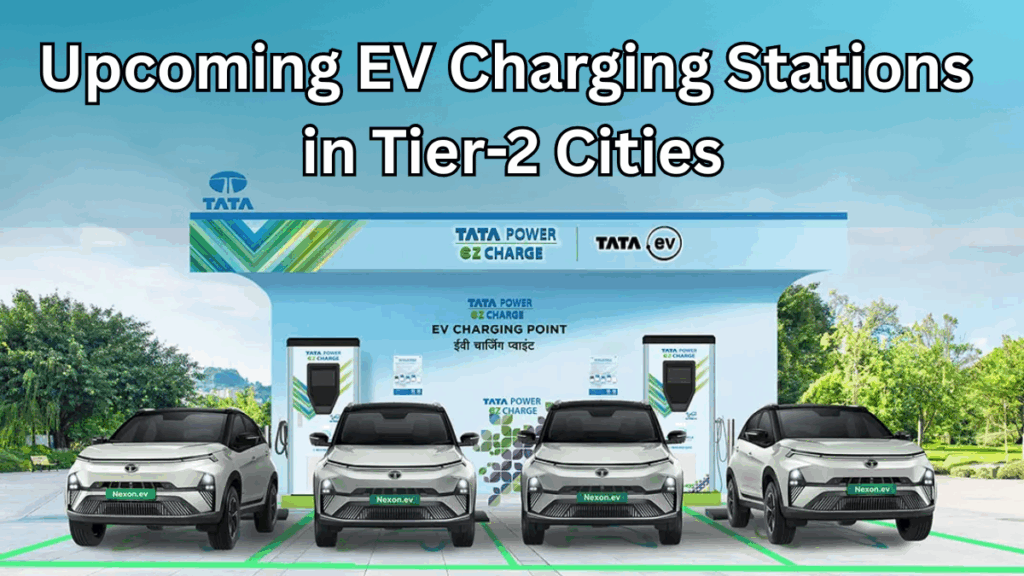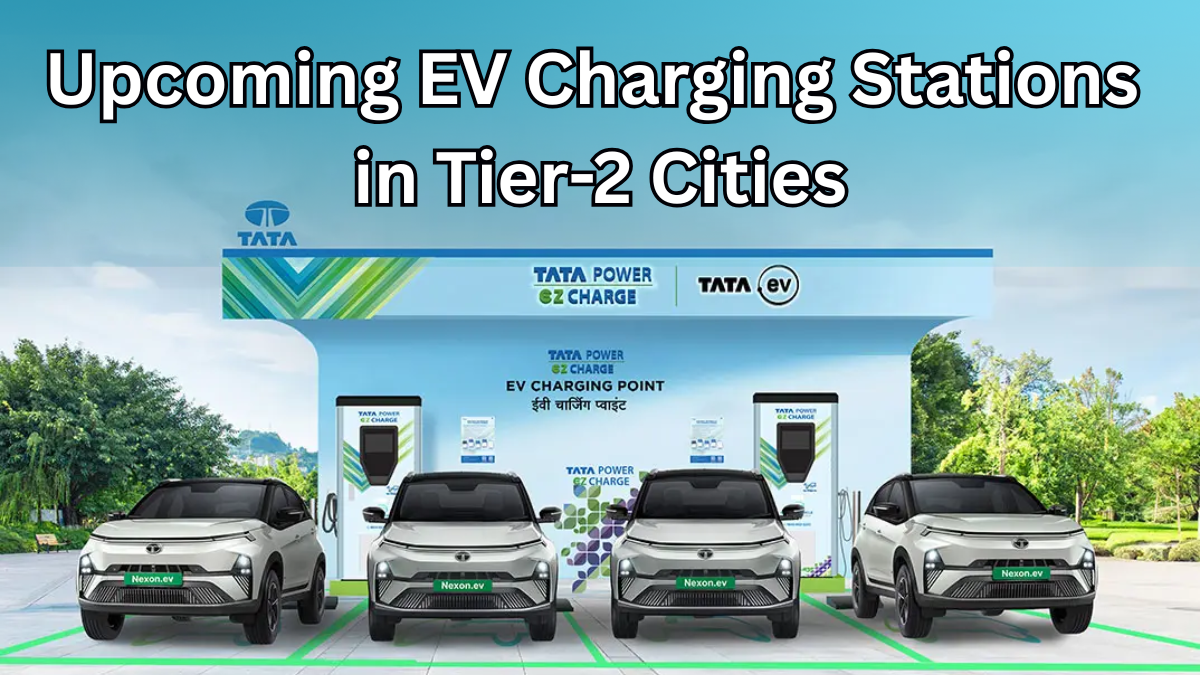As India accelerates its green mobility mission, 2025 promises to be a transformative year for Tier-2 city EV infrastructure. The government and private sector are teaming up to ensure that electric vehicle support isn’t limited to just metros anymore. This means residents in cities like Indore, Surat, Kochi, and Jaipur can soon expect convenient access to EV charging stations, making e-mobility more mainstream and sustainable.

Why Tier-2 Cities Matter in India’s EV Story
Tier-2 cities are the backbone of India’s urban growth. They’re witnessing rapid urbanization, growing disposable incomes, and increased vehicle ownership. Yet, Tier-2 city EV infrastructure still lags behind. Recognizing this gap, India’s 2025 roadmap focuses on building a robust EV charging stations expansion network beyond the big metros.
What’s Planned for 2025?
Here’s what India’s electric vehicle policy outlines for the upcoming year:
Key Expansion Targets
| Category | Target for 2025 |
|---|---|
| Number of new charging stations | 22,000+ nationwide |
| Tier-2 city focus | 40% of all new installations |
| Charging stations per city | 50–100 units based on population |
| Key stakeholders involved | BEE, DISCOMs, EESL, private firms |
| Target cities | Bhopal, Coimbatore, Nashik, etc. |
This EV charging stations expansion India 2025 initiative ensures a more decentralized, inclusive charging infrastructure. It bridges the urban-rural divide in EV access, a long-time bottleneck for potential buyers in Tier-2 cities.
Highlighted Tier-2 Cities in the Expansion Plan
Let’s take a closer look at some Tier-2 cities leading this green revolution:
Top Focus Cities
-
Indore – Already a smart city pioneer, now investing heavily in EV charging grids.
-
Coimbatore – Plans 80+ new public EV stations in collaboration with state-run bodies.
-
Jaipur – Introducing EV-only lanes and fast chargers in key commercial zones.
-
Bhubaneswar – EV charging hubs to be integrated into railway stations and malls.
-
Vijayawada – Focus on solar-powered charging solutions.
How This Benefits Local Residents and Businesses
The Tier-2 city EV infrastructure development isn’t just about mobility—it’s about economic and environmental upliftment.
Benefits Include:
-
Job Creation – Installation, maintenance, and operations of EV stations offer new employment opportunities.
-
Cleaner Air – Reducing internal combustion engine vehicles cuts down pollution significantly.
-
Boost to Local Economy – Small businesses can host charging points, attracting footfall.
-
Increased EV Adoption – With more electric vehicle support, confidence in EV ownership rises.
Tech Upgrades: What Type of Charging Will Be Offered?
| Charging Type | Speed | Ideal For |
|---|---|---|
| AC Level 1 | Slow | Home/overnight charging |
| AC Level 2 | Moderate | Office spaces, malls |
| DC Fast Charging | Very fast | Highways, public hubs |
| Solar-integrated | Eco-friendly | Remote or off-grid areas |
Many of the newer stations in Tier-2 cities will feature DC Fast Charging, enabling 80% charge in under 60 minutes.
Government and Private Sector Collaboration
The government is offering capital subsidies under the FAME II scheme and encouraging Public-Private Partnerships (PPPs). Major players like Tata Power, Ather Energy, and ChargeZone are actively rolling out stations in Tier-2 and Tier-3 cities.
Key Collaborators
-
Energy Efficiency Services Limited (EESL)
-
State DISCOMs
-
Urban Local Bodies (ULBs)
-
Private EV tech companies
Challenges on the Road Ahead
Despite the ambitious plan, challenges remain:
-
Land availability for setting up stations
-
Grid connectivity in less developed urban pockets
-
Public awareness and trust in EV technology
-
Skilled workforce to maintain advanced charging equipment
Final Thoughts
India’s vision of a clean, electrified future is finally reaching its heartland. With the government prioritizing EV charging stations expansion India 2025, Tier-2 cities are emerging as powerful change-makers. As electric vehicle support grows across regions, a greener, cleaner India is well within reach.
Frequently Asked Questions (FAQs)
Q1. Which Tier-2 cities are included in India’s 2025 EV expansion plan?
A: Cities like Indore, Jaipur, Coimbatore, Bhubaneswar, and Nashik are prioritized for EV infrastructure development.
Q2. Will DC fast chargers be available in Tier-2 cities?
A: Yes, the 2025 plan includes deploying DC fast chargers in public hubs and along intercity highways.
Q3. What support is available for local businesses to set up EV chargers?
A: Through the FAME II scheme and state incentives, small businesses can access subsidies and partnerships to install charging points.
Q4. How will the EV charging network help Tier-2 city residents?
A: It will provide affordable, convenient access to EV charging, encourage cleaner transport, and boost job opportunities in green tech.
Click here to learn more
